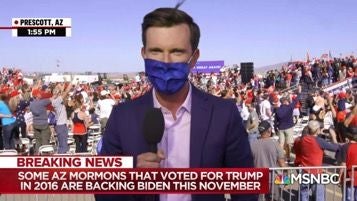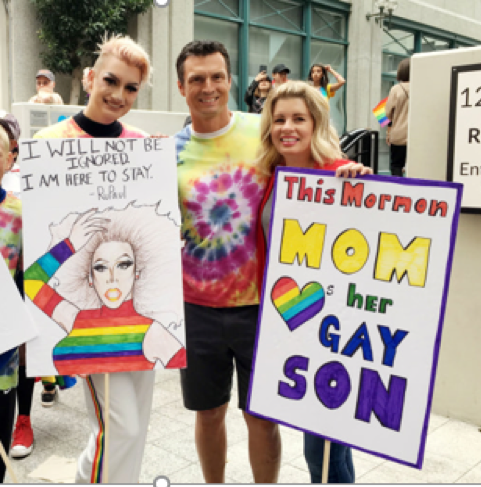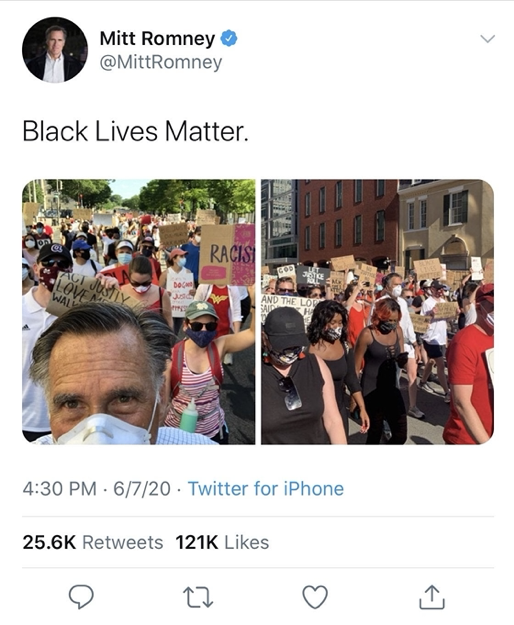What young Mormon voters can teach us about Arizona's changing political landscape
By Brittany Romanello

By Brittany Romanello
Since The Church of Jesus Christ of Latter-day Saints (also called Mormonism) was established in 1830, it has maintained a prominent position in global religious politics, including building one of the most diverse (inter)national business empires. Although the Church has a controversial history that includes an anti-establishment past, members’ votes have leaned heavily conservative or Republican the last few decades. However, young millennial and Generation Z Mormons are challenging this status quo. Capturing Church members' votes was a priority for presidential candidates in 2012, 2016, and 2020, especially among conservative women and Latinx voters. US Mormonism, like other American religious groups, is experiencing an exodus in traditionally active membership, yet maintains an important influence in former members’ future voting decisions.
As part of the Arizona Youth Identity Project (AZYIP), under the direction of Drs. Nilda Flores-Gonzalez, Angela Gonzales, Emir Estrada and Nathan Martin, I helped develop religion-specific questions that our team of research assistants used to interview 38 Mormons between 18-29 before and after the 2020 election cycle. AZYIP’s goals were to understand and, at times, challenge existing stereotypes about young Arizonan’s politics and sense of identity. So, what did our study learn about Mormons and Arizona’s political landscape?
Mormonism has long been associated with conservative thought and voting patterns, however, the majority of AZYIPs Mormon subsample (58%) identified as Independent or Democrat and were more likely to vote for Biden. They wanted to vote for candidates who embodied their personal and religious ideals. Stacey, age 21, is a Democrat who shared, “The way that I vote is trying to think of what falls in line with God's commandments, while at the same time [who] would best benefit society and take a merciful and loving approach.”
She described young Mormons challenging long-standing binaries, choosing instead to prioritize both religious and progressive social beliefs, voting for candidates and policies that could do the most widespread good. Lynette, age 19, identifies as an Independent. She, like Stacey, felt it’s important for non-members to reevaluate their assumptions about Mormons, stating, “Not everyone in the Church votes the same or has the same stance [but] I do think that me being part of [Mormonism] has influenced my political identity…the Church has helped me be brave to stand up for myself, whether it's for the Church’s [views] or against them.”
Findings like these show Mormons in Arizona remain on-trend for younger millennial and Gen-Z populations. Recent studies show these age groups are more progressive and less likely to affiliate with a major political party, but they still believe in the power of voting and government.
Mormonism has long taught “traditional” Christian gender roles within a nuclear family, including the eternality of gender identity. However, many Mormon AZYIP participants challenged these ideals. Sadie, age 25, is a Democrat who said she doesn’t agree with the “sexist” attitudes shared by some Church members or leadership, stating that she often heard things like: “…if you're a woman, you're just meant to have babies and stay home” with which she didn’t agree. Sadie also felt in regard to LGBTQ members like her trans friend growing up that Mormons needed to “love others the way [we profess to love them [at church].” For progressive members like Sadie, “showing love” meant showing up for LGBTQ peers and supporting voting measures for gender equality.
Mariah, age 20, says she disagrees with the “historically sexist and homophobic tendencies” within Mormon religious teachings, but remains a member for other nuanced reasons. Both Sadie and Mariah, who identify as active in Mormonism, disagree with the Church’s stance against same-sex marriages and relationships, and participate in increasing LGBTQIA activism within their Church communities. Betty, age 27, shared their views as gay Mormon, “I’m a lesbian and I’m a member of the Church… both impact my identity and politics.”
The few other queer-spectrum Church members also expressed that they were comfortable in actively challenging traditional ideas about gender and heteronormativity, and that they voted accordingly.

Of the 38 Mormon AZYIP participants, nine (23%) identified as Latinx or Native American. This is reflective of the US Church’s recent change in racial demographics in the Southwest. Among these nine young adults, over half identified as Republican or “conservative.” Vivian, a 23-year-old multiracial Latina, said she didn’t want to vote for Trump but felt no conflict identifying as Republican, saying “traditional” values complimented her racial identity. She confirmed that in Church, “yes, [as a Latina] racist things have happened,” but at the same time, “I never felt like an outcast.” Jonathan, age 25, is a Church convert who said he’s a “very committed” Republican, but sometimes feels rejected by other Latinos because he voted for Trump. He shared, “People see my brown skin and say, you're a traitor to your race.”
Jonathan, like Vivian, felt his conservative and ethnic values existed in harmony. While some BIPOC Mormons were more likely to vote Republican than their non-Mormon counterparts sampled in the AZYIP study, the other half of those Latinx or Native American Mormons described resisting “white” or “Mormon” cultural pressures to vote Republican or adopt “conservative” ideas. A few participants like Mariah, who is Afro-Latina, believed aligning with Republicans after the Trump presidency condones racism. She “absolutely believes” racism is an ongoing issue in the Church, stressing that, “We can’t use God as an [excuse] to not address racism [in the Church]. We can’t say ‘let’s not go there’ anymore.”
These findings on Arizona Mormons’ racial views in relation to voting choices shows how important it is to remember we cannot always make assumptions how religion, race and gender track among certain groups’ voting decisions.
The AZYIP study demonstrates how Mormons continue to shape Arizona's political landscapes. A deeper understanding of young Church members' political perspectives, including their views on party affiliation, gender, and race, allows us to understand how nuanced and complex young voters like Gen Z will remain in their voting choices.

Global Human Rights Hub Fellow 2021-2022